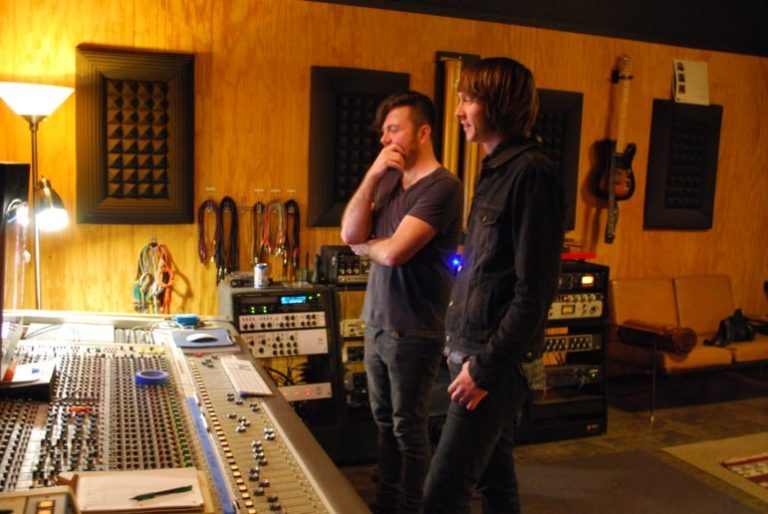
Artists Dear Silas, Sam Mooney and more find their voice in recording studios across the state
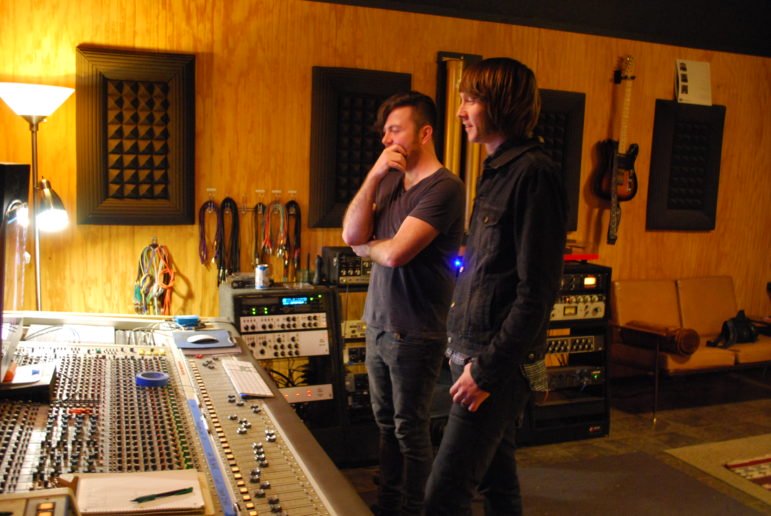
Photo by Jim Beaugez
Bronson Tew, left, and Matt Patton, co-owners of Dial Back Sound in Water Valley
Blues fanatics like Dick Waterman once traveled to Mississippi to track down influential blues musicians whose music had lapsed into obscurity.
Delta bluesman Son House, Skip James of Bentonia and hill country great Fred McDowell all enjoyed renaissance periods through the 1960s and ’70s, recording music and playing across the U.S. and Europe. Some artists, though, like Leo “Bud” Welch of Calhoun County, were never discovered in the first place.
“You haven’t seen an unknown blues artist come out of the hill country in a while,” says Matt Patton, co-owner of Dial Back Sound in Water Valley. “That was just out of left field that he came, and he was such a bright, shining presence there towards the end of his life.”
Welch was one album into his brief recording career when the 82-year-old came to Dial Back to cut I Don’t Prefer No Blues [Big Legal Mess, 2015], a bracingly raw record of hill country blues. Patton remembers backing Welch on “Girl in the Holler” with studio co-owner Bronson Tew, plus Jimbo Mathus and Andrew Bryant, when he suddenly sprang to life.
“When it hit him—the groove and the vibe that we were all giving him—he jumped up out of his chair,” recalls Patton, who also plays bass in Drive-By Truckers. “He started to dance around the room, and whoop and holler into the microphone. It was completely raw and organic.”
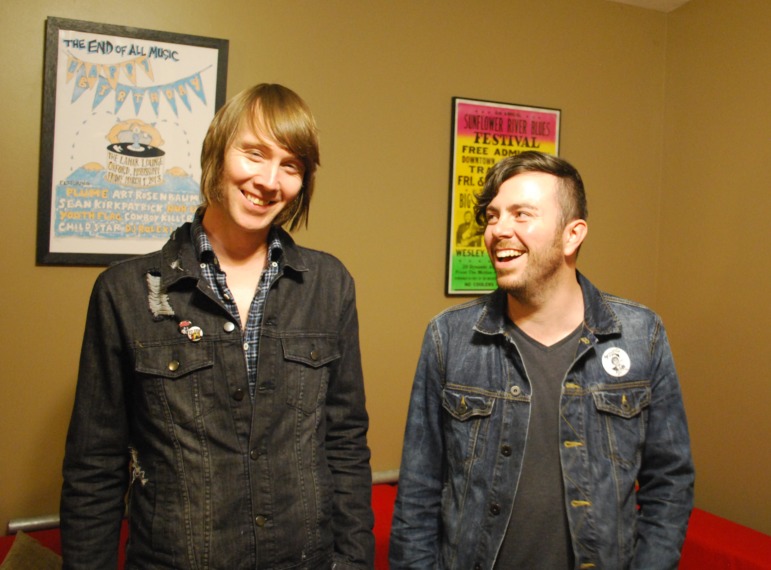
Recording studios like Dial Back Sound play an important role in documenting the sounds and artists of Mississippi. Jackson’s country-rockers Young Valley, singer-songwriter Spencer Thomas and indie rock trio Water Liars have all recorded there. Some artists have traveled from Seattle, Los Angeles and even the Czech Republic to catch what inspired people like Welch.
“It’s not so much the science and the theory as it is just the vibe,” Patton says, “and putting out what sounds good to us.”
Shell Enos of Crown Studios in Jackson can relate. Part of the reason he established his studio in the Fondren neighborhood five years ago was to push back against the stifling environments he found at other studios.
“I like the low-pressure, ‘take your shoes off’” vibe, he says. “If [a song]’s not working, go make a cup of coffee and come back in 30 minutes and try it again. Just really laid back.”
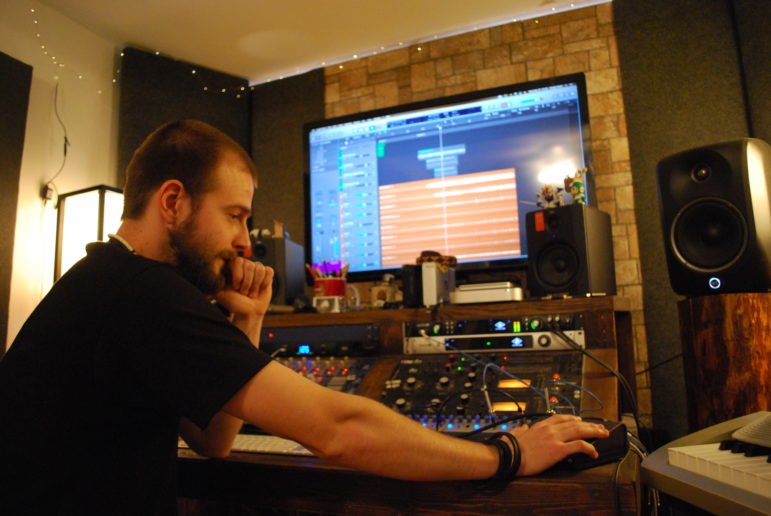
His methods have worked well so far. Enos, a hip-hop head whose first major sound gigs were mixing Mystikal live in Vicksburg and Rick Ross at the Mississippi Coliseum, made fast friends with Jackson artist Dear Silas. His hit song “Skrr Skrr,” recorded at Crown, has 4.2 million streams on Spotify to date.
“When I met with him the first time,” Enos says, “we sat out on that patio and talked about what the vision would be for The Last Cherry Blossom,” Silas’s breakthrough album that spawned “Skrr Skrr” and earned him a deal with RCA Records.
“Early on, I honestly didn’t know a ton about his music, but I could see he had that fire in his eye, and there was like a certain level of musicality that he wanted to bring to the whole project.”
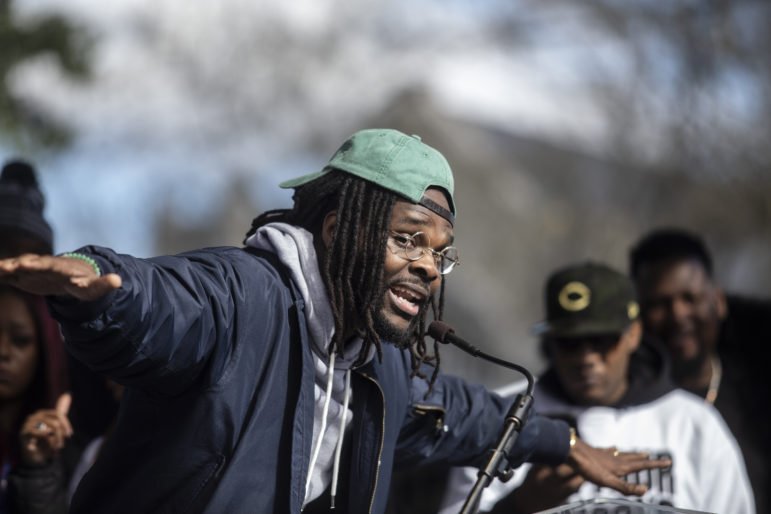
Eric J. Shelton/Mississippi Today, Report For America
Hip-hop artist Dear Silas speaks to protesters during a prison reform rally in front of the Mississippi Capitol in January.
When Enos and his wife moved to Jackson six years ago from Michigan, he found a vibrant music scene and a low cost of living that make it ideal for supporting a strong music scene. Now he has a stable of versatile backing musicians who come in to record sessions with artists of all kinds.
“In the same week, we may do a gospel record, rock record, a pop record, a hip-hop record and a singer-songwriter,” he says. “We are all over the place. But I love every session.”
Enos and his wife fully embraced the Fondren community, and the feeling’s been mutual—the studio’s mission is to document the art being made there. They live a couple of blocks away from Crown, and they’re neighbors with a lot of their clients.
“So many times we’ll go out or just be on a walk and bump into the people that come in and do session work at Crown. I would say the vast majority of the artists I work with live in Fondren.”
Before Casey Combest founded Blue Sky Studios in Jackson a decade ago, the musician and producer had started to notice a gap of opportunity widening between artists at different levels of the industry.
“I began to see this middle class of musicians emerge,” he says, “which means in a minor market like Mississippi, you could actually do music full-time and still be unheard of in L.A. or New York.”
Combest took five years to prove his concept, keeping the studio a part-time concern until he knew it would work. Since then, he’s had a hand in records by artists such as Sam Mooney, a Brookhaven native whose song “Find My Way” reached No. 1 on the iTunes Singer/Songwriter chart.
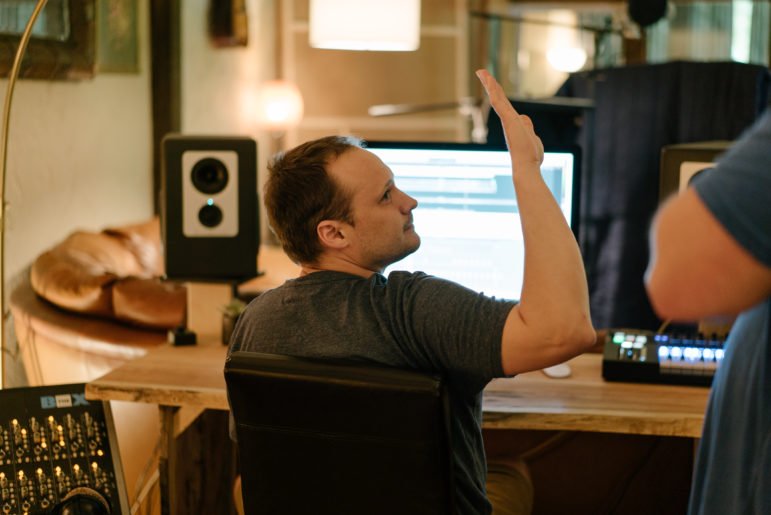
“We want to help artists and bands launch and grow meaningful music careers,” says Combest. “We really work hard to help people find that spot where their music is both unique and authentic to them, but crafted in a way that sounds current and relevant to what’s happening in the global market.”
Combest also found a niche producing podcasts for clients in Mississippi (including Mississippi Today’s “The Other Side” podcast) and elsewhere, and now operates Blue Sky Podcasting separately from the music studio.
“We now have about 15 companies that we help in some form or fashion with their podcasts,” he says. “Half of those are based here in Mississippi and the other half are national or global companies.”
Diving into podcasting as a business brought Combest back to what originally inspired him to start his own business.
“When I first started 10 years ago, it really was triggered by a podcast,” he says. “There was a guy I listened to a lot, and he talked about entrepreneurship. I looked backwards and saw that entrepreneurship had always been something I cared about in some form or fashion. [But] when you’re a kid selling baseball cards or doing something like that, you don’t call it entrepreneurship.
“Podcasts, in a lot of ways, was my MBA. It was how I learned about business and leadership, and growing a business. It always kind of had a special place in my heart.”
Because recording studios in Mississippi exist outside of high-pressure, high-overhead music markets like those in Los Angeles, New York and Nashville, musicians and producers here are free to explore their craft and creativity without scrutiny. Artists can afford to spend the time it takes to find their voice, and to find collaborative partners to perfect their music.
“In five years, if I’m not doing either of these things, I’d be sad,” Combest says. “But at the end of the day, I want to make sure that I’m helping whoever I’m working with, if that’s a company, a brand or a musician. I think for me, it’s just more about making it better.”
The post Homegrown recording studios help musicians carry Mississippi’s musical legacy forward appeared first on Mississippi Today.